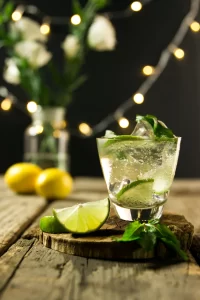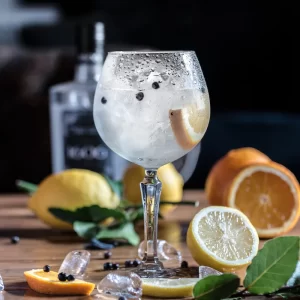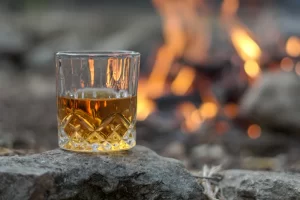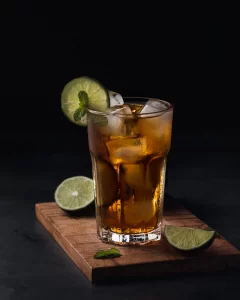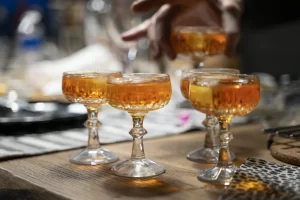Montana Liquor Laws And Regulations
No matter whether you’re a resident of Montana or a tourist exploring, you can get fined for breaking Montana laws surrounding liquor. In this article, we are going to be breaking down the main liquor laws and regulations in Montana, including its licensing requirements and distillery restrictions. Read on.
The Minimum Drinking Age
In Montana, no one that is under the age of 21 is allowed to buy alcohol. That being said, anyone that attempts to purchase alcohol with a fake ID will be committing a crime. More so, it is illegal for anyone to buy, sell or even use a fake ID in Montana.
However, despite the fact that it is illegal to purchase alcohol in Montana under the age of 21, it is important to keep in mind that if the alcohol is purchased by a legal guardian or parent, then it is legal for minors to drink alcohol.
That being said, the liquor needs to be consumed at a private location in order for it to be legal, such as at a private event.
In addition to the above, Montana allows those under the age of 21 to work as servers in bars and other places that sell alcohol. However, it is important to keep in mind that only minors over the age of 18 are allowed to actually bartend.
Selling Alcohol In Montana
All of the liquor stores in Montana are currently state owned. In addition to this, the majority of these types of stores are typically open from 10am through to 6pm, although there can be some exceptions to this timeframe.
However, despite this, keep in mind that all state stores are closed on Sunday, and stores that sell liquor, spirits and other types of alcoholic beverages are no exceptions.
Additionally, bars and restaurants are also allowed to sell alcoholic beverages on their premises so long as they have the necessary licenses in order to be able to legally do so.
More often than not, all bars and restaurants that wish to sell alcoholic beverages in Montana will need to have a package license, although there can be some variations.
It is also important to note that there are time restraints on when restaurants are allowed to sell alcoholic beverages, and the typical timeframe for this is usually between 11am to 11pm.
In addition to this, Montana breweries are allowed to serve alcoholic beverages to their customers from 10am to 8pm, with the maximum amount per client being 48 ounces.
Grocery stores and convenience stores are also allowed to sell alcoholic beverages so long as they have the relevant license, and the timeframe for selling alcohol is between 8:30am to 2am.
Montana State Fees And Licensing Requirements
If you want to get yourself a liquor license in Montana, it is important to keep in mind that the process can take anywhere from 40 days all the way up to 6 months and even longer in some rare instances.
In order to get an alcohol license in Montana, keep in mind that they are state administered. This means that in order to get one in your name, you are going to be required to go through the Montana liquid board approval process in order to get accepted for one.
There are a few different types of liquor licenses that you can get in Montana, which means that you’ll need to make sure that you are taking the time to consider which one is going to be the best for you.
The information for which license to get (as well as additional information about Montana licensing requirements and state fee prices) can be found here.
As for the state fees that you can expect to pay in order to acquire your license? Well, as we have already mentioned above, there are various different types of alcohol licenses that you can get in Montana.
Due to this, it means that the state’s fees for applying for and taking out a Montana license can be anywhere from $400 up to $1000.
Montana Distillery Restrictions And Laws

If you are planning to have your very own distillery in Montana, the good news is that it is legal in the state of Montana to do this so long as you are not going to be using it in order to facilitate the manufacture of moonshine, which is prohibited.
In addition to this, it is also important that you keep in mind that Montana also allows for the manufacture of non-consumable ethanol. This means that you can also use a distillery to legally distill water, essential oils and more.
Keep in mind that, in order to legally use your distillery, you are going to need to make sure that you have got a license (there are a variety of licenses that you may need) from the Montana state in order to make alcohol. However, you will not need to get many licenses in order to manufacture ethanol fuel, which is something to keep in mind.
Here is a breakdown of the main restrictions and laws surrounding distilleries in Montana:
Licenses
If you wish to legally manufacture spirits, you are going to be required to request and be approved for a variety of relevant licenses by the state. To be specific, you’ll need to make sure that you have a Distilled spirit plant license, a basic permit, a federal license and any additional licenses that the state might deem fit.
Operating Without A license For alcohol Production
It is illegal to operate a distillery in Montana for alcohol production without having the necessary licenses that we have mentioned in the point above. Failure to comply with these requirements can result in fees of upwards of $50,000 dollars
Operating With A License For Alcohol Production
Montana currently allows all citizens the right to own a still or distillery in order to create non-alcoholic liquids. This can include everything from distilling water all the way to distilling essential oils.
The Bottom Line
You’ve reached the end of this guide. After taking the time to read through our guide above, we hope that we have been able to answer any questions that you might have had surrounding Montana’s rules and regulations with regards to liquor, spirits and alcohol in general.
Why don’t you consider giving this page a bookmark? That way, if you ever need to come back and refresh your knowledge on everything we’ve spoken about in this guide, you’ll know exactly where to find us. Bye for now!

